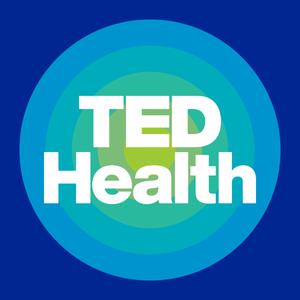
TED Health
TED
TED speakers answer questions you never even knew you had, and share ideas you won't hear anywhere else, all around how we can live healthier lives
- 13 minutes 42 secondsWhy broken hearts hurt — and what heals them | Yoram Yovell
What's the relationship between physical and mental pain, and how can you ease both? Revealing how your experiences of love, loss and pain are deeply intertwined, neuroscientist Yoram Yovell sheds light on the surprising role of your brain's endorphins and opioid receptors to ease physical and emotional suffering — and shows how this connection could pave the way to new treatments for mental health and well-being.
23 July 2024, 4:00 am - 18 minutes 23 secondsMy quest to cure prion disease — before it's too late | Sonia Vallabh
Biomedical researcher Sonia Vallabh's life was turned upside down when she learned she had the genetic mutation for a rare and fatal illness, prion disease, that could strike at any time. Thirteen years later, her search for a cure has led to new insights about how to catch and prevent disease — and how to honor our grandest, most mysterious inheritance: our brains.
16 July 2024, 4:00 am - 9 minutes 9 secondsHow to calm your anxiety, from a neuroscientist | Wendy Suzuki
What if you could transform your anxiety into something you can actually use during your work day? This week, we're revisiting a talk by neuroscientist Wendy Suzuki, who shares two evidence-based activities — breathing and movement — that can soothe your nervous system and fuel creativity and connection.
9 July 2024, 4:00 am - 12 minutes 35 secondsThe science of lifespan — and the impact of your five senses | Christi Gendron
What you experience through your senses — sight, smell, hearing, taste and touch — can impact how healthy you are and how long you live, says neurobiologist Christi Gendron. She explores how environmental cues like temperature, light and even just the sight of death have influenced the lifespan of fruit flies, suggesting your everyday perceptions may have direct repercussions on your ability to live a long, healthy life.
2 July 2024, 4:00 am - 13 minutes 39 secondsHow aerosols brighten clouds — and cool the planet | Sarah J. Doherty
Here's a conundrum: the same aerosol pollutants that harm human health also help cool the climate, says atmospheric scientist Sarah J. Doherty. Is there a way to clean up the air without warming the planet? Exploring the unintended consequences of reducing air pollution, she makes the case for a better understanding of marine cloud brightening — or intentionally adding sea salt aerosols to clouds over the ocean, which could reflect sunlight back into space and potentially reduce global warming.
25 June 2024, 4:00 am - 6 minutes 15 secondsFood expiration dates don't mean what you think | Carolyn Beans
Countries around the world waste huge amounts of food every year: roughly a fifth of food items in the US are tossed because consumers aren't sure how to interpret expiration labels. But most groceries are still perfectly safe to eat past their expiration dates. If the dates on our food don't tell us that something's gone bad, what do they tell us? Carolyn Beans shares how to prevent food waste. This TED-Ed lesson was directed by Anton Bogaty, narrated by Alexandra Panzer and the music is by Salil Bhayani, cAMP Studio.
18 June 2024, 4:00 am - 11 minutesThe miracle of organ donation — and a breakthrough for the future | Abbas Ardehali
Organ transplants save lives, but they come with challenges: every minute a healthy donated organ is on ice increases risk. And even if things go perfectly, rejection of the organ is still possible. Cardiothoracic surgeon Abbas Ardehali introduces cutting-edge medical advances in machine perfusion — a portable platform that keeps organs alive outside of the body — that could help put time back on the patient's side.
11 June 2024, 4:00 am - 10 minutes 38 secondsThe vital data you flush down the toilet | Newsha Ghaeli
"Everybody pees and poops — and we know that urine and stool contain a rich source of information on our health," says data detective Newsha Ghaeli. Exploring the growing field of wastewater epidemiology, she shows how studying sewage can (anonymously) reveal a lot about the collective well-being of our cities — leading to real-time quality-of-life improvements like tracking pandemics, updating social policies and much more.
4 June 2024, 4:00 am - 6 minutes 5 secondsWhy is it so hard to cure the common cold? | George Zaidan
On average, adults catch more than 150 colds throughout their lives. Even with similar symptoms, the cause could be different each time. Common colds are caused by at least 8 different families of virus, each of which can have its own subtypes. How can so many different viruses cause the same illness? And is a cure even possible? Explore the two main strategies we employ to fight viruses. This TED-Ed lesson was directed by Anton Bogaty, narrated by George Zaidan and the music is by Nikola Radivojevic.
28 May 2024, 4:00 am - 34 minutes 16 secondsWhat happens to sex in midlife? A look at the "bedroom gap" | Maria E. Sophocles
Menopause isn't just hot flashes, says gynecologist and sexual medicine specialist Maria Sophocles. It's often accompanied by overlooked symptoms like painful sex or loss of libido. Shedding light on what she calls the "bedroom gap," or the difference in sexual expectations of men and women in midlife due to societal norms, Sophocles advocates for education, medical advancement and a new understanding of menopause — because sex should be pleasurable and comfortable for everyone. After the talk, join Shoshana for a conversation with OB/GYN and women’s health advocate Dr. Jessica Shepherd.
21 May 2024, 4:00 am - 7 minutes 8 secondsHow to make smart decisions more easily | Alexandra Panzer
Everything our bodies do— whether physical or mental— uses energy. Studies have found that many individuals seem to have a daily threshold for making decisions, and an extended period of decision-making can lead to cognitive exhaustion. So, what kinds of choices lead us to this state, and what can we do to fight fatigue? Explore the psychology of decision fatigue and ways you can avoid fatigue. Directed by Jolene Tan, narrated by Alexandra Panzer and music by Jeremie Lim.
14 May 2024, 4:00 am - More Episodes? Get the App
Your feedback is valuable to us. Should you encounter any bugs, glitches, lack of functionality or other problems, please email us on [email protected] or join Moon.FM Telegram Group where you can talk directly to the dev team who are happy to answer any queries.
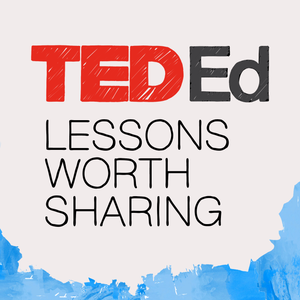 TED-Ed: Lessons Worth Sharing
TED-Ed: Lessons Worth Sharing
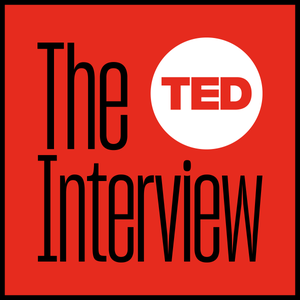 The TED Interview
The TED Interview
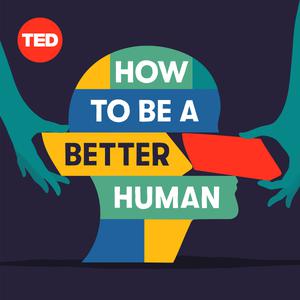 How to Be a Better Human
How to Be a Better Human
 TED Talks Daily
TED Talks Daily
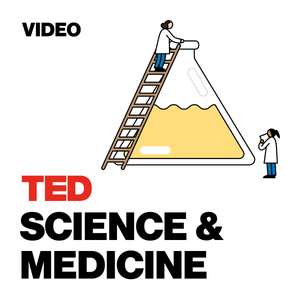 TED Talks Science and Medicine
TED Talks Science and Medicine
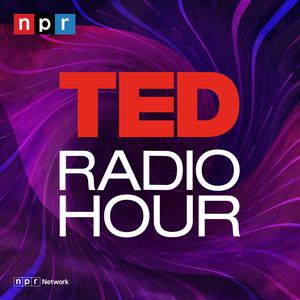 TED Radio Hour
TED Radio Hour